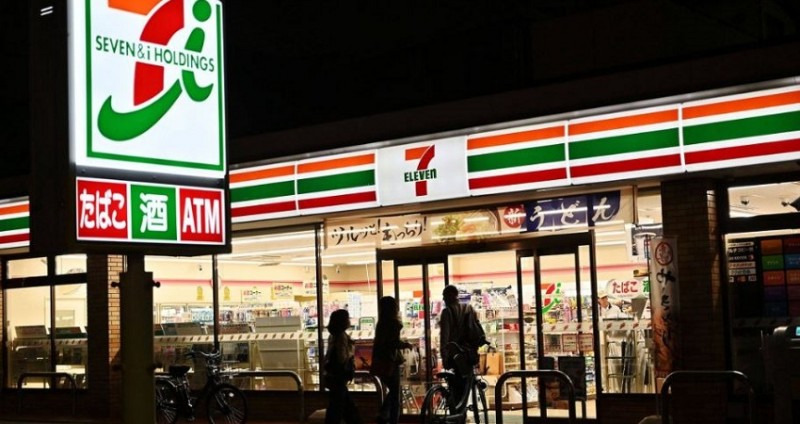
In Japan, convenience stores, or "konbini," are more than just places to pick up quick items—they are a cherished part of daily life. Clean, bright, and well-stocked with fresh and affordable foods like lunchboxes, steamed buns, and winter stews, these stores are essential to millions of Japanese people. Celebrity chef Anthony Bourdain even called them "the one vice" he couldn't give up.
Among the more than 55,000 konbini across Japan, 7-Eleven stands out as the largest and most renowned chain. This prominence is so significant that the company’s current owner, Seven & i Holdings, recently received an unsolicited takeover bid from Alimentation Couche-Tard, a major convenience store operator based in Canada.
The idea of selling 7-Eleven, a cornerstone of Japanese society, is a contentious one. Hiroaki Watanabe, an independent retail analyst, likened the potential sale of 7-Eleven to "Toyota becoming a foreign company" due to its integral role in Japanese culture.
7-Eleven began as an American chain in Dallas in 1927 and expanded to Japan in 1974. It quickly became popular with its American-style items and rapidly grew to 100 stores within two years. In 1991, a Japanese supermarket operator, Ito-Yokado, and 7-Eleven Japan acquired a major stake in the American chain. By 2005, 7-Eleven had become wholly Japanese-owned under the holding company Seven & i.
Today, Seven & i operates over 21,000 7-Eleven stores in Japan and has expanded to 20 other countries and territories. In the United States, Seven & i is exploring ways to replicate the Japanese convenience store experience, possibly including the introduction of ramen noodles.
In contrast, North American convenience stores are often seen as places for packaged snacks, drinks, and gasoline, with a reputation for limited hot food options. Couche-Tard, which operates under the Circle K brand, manages over 16,000 stores and gas stations across North America and Europe. The Canadian company has previously attempted international expansions, including a failed bid to acquire the French grocery chain Carrefour in 2021.
If Couche-Tard's acquisition of 7-Eleven were to succeed, it would be the largest foreign-led acquisition of a Japanese company, forming one of the world’s largest retail groups. However, significant obstacles could complicate the deal. Seven & i is a conglomerate with diverse interests, including banking and carrier services, which may draw intense scrutiny from the Japanese government.
Moreover, there are notable differences between the operations of Couche-Tard and Seven & i. Japanese konbini are renowned for their rapid product development and seasonal offerings, with about 3,000 products available at each store, 70% of which are replaced annually. A substantial portion of Seven & i’s profits comes from its Japanese stores, so Couche-Tard would need a strong proposal to demonstrate how it could enhance this key business.
Watanabe, who studied convenience stores across the United States, noted that Japanese konbini are "completely different and unique," making any takeover particularly challenging.
The first 7-Eleven in Japan, opened in 1974 in a quiet Tokyo neighborhood, remains a bustling hub of activity. Locals like Sakura Kobayashi, who frequents the store for its fresh foods, and Yuta Matsumura, who enjoys the store’s desserts, reflect the deep connection that many Japanese people have with 7-Eleven. Matsumura appreciates the store's sweets, which he feels are perfectly suited to Japanese tastes.
Recent Updates: